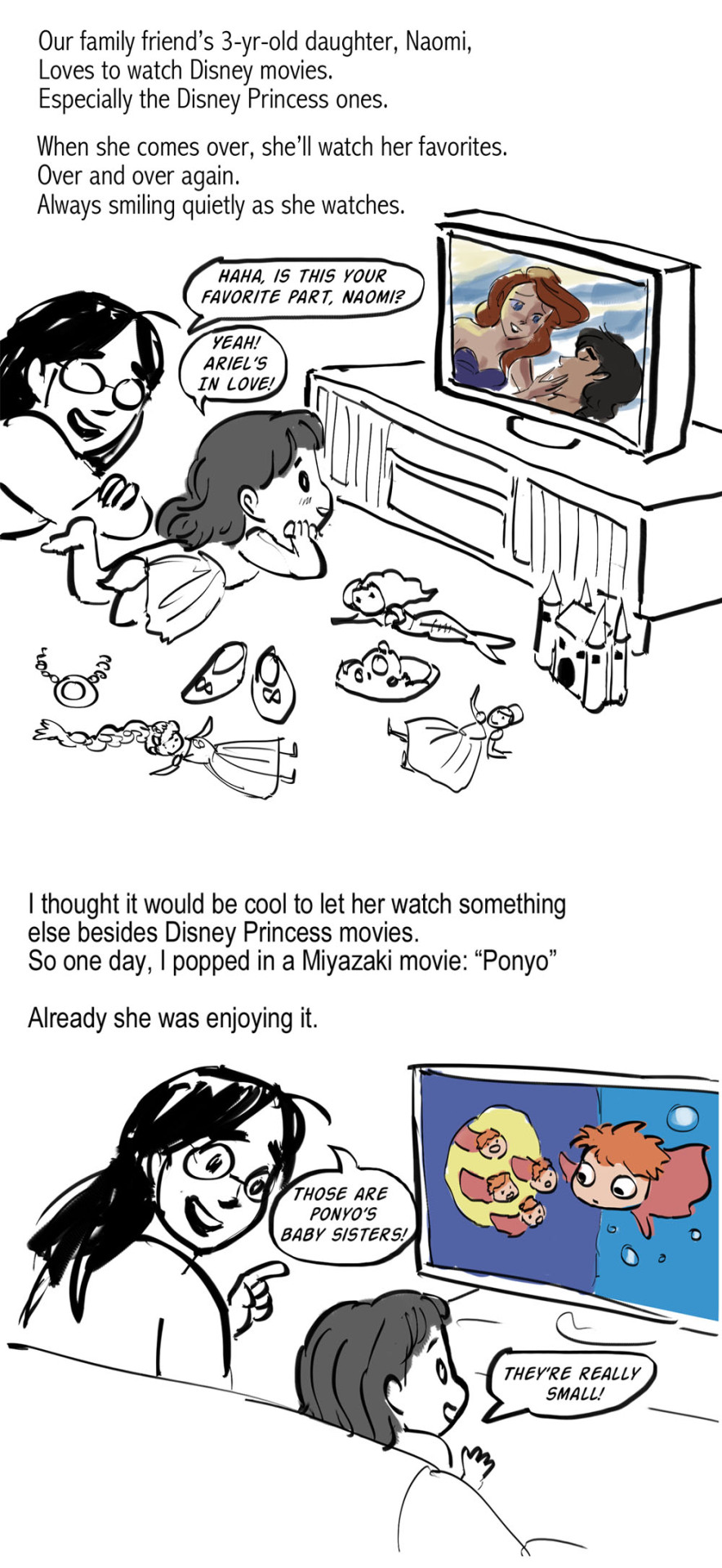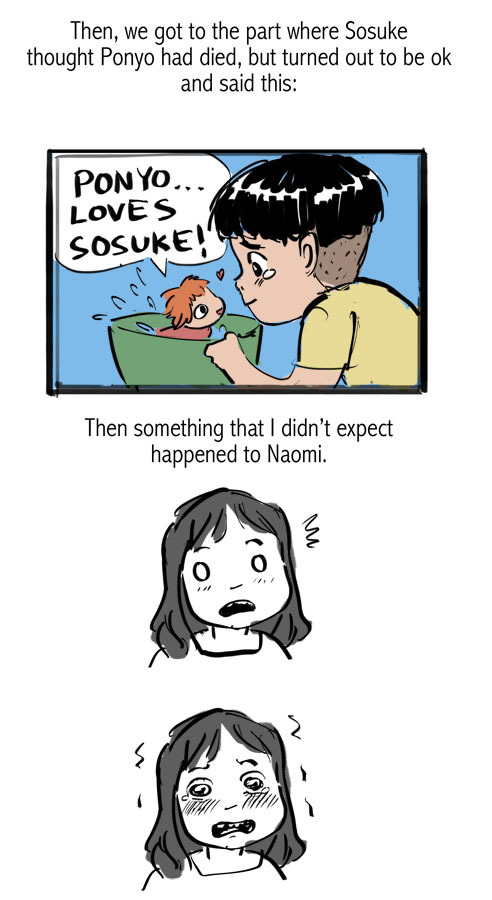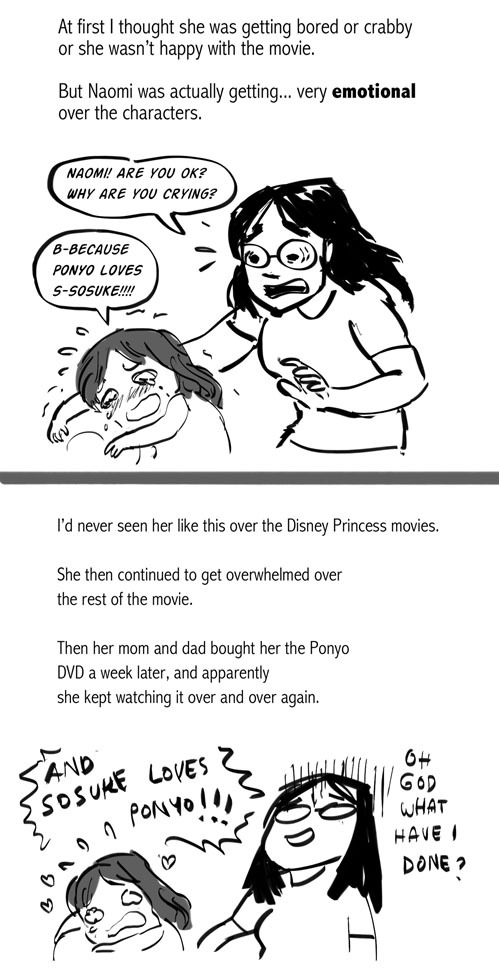Baby’s First OTP Feels: a Tale of Regret
Ahahah oh man an amazing thing that actually happened???
NO Baby girl you are too young for this life and pain.Her mom thinks it’s hilarious and gave me permission to make a comic out of it? It’s awesome that she has all the Disney movies at her house, and they didn’t know about Miyazaki before! Now they do and watch it with her!
I let her watch Totoro weeks after that! She got really into it too!
me
OK, so this is awesome, but it also highlights something really important about different types of narrative. Namely:
Disney princess stories are constructed, from the outset, around the idea that the leads end up together. Even as little kids, we know that Eric and Ariel are Meant To Happen, and so when it eventually does, it feels preordained – but not necessarily earned, because their union was never in doubt.
Miyazaki films, on the other hand, are built along different lines. Even when a particular character relationship forms the basis of the narrative, there are no narrative signposts along the way to indicate that the two characters are meant to end up together, nothing to reassure us that they’ll get a happy ending. So when they do, it doesn’t feel preordained in the way that Disney happy endings do – but it does feel earned, because there was doubt about what would happen.
And that difference, I think, is what this little girl here is responding to. She’s grown up learning the narrative cues that Princess And Prince End Up Together, and so she isn’t really surprised when it happens. But when she watched Ponyo, even though she didn’t know what was going to happen, she still formed an opinion about what she wanted to happen – and so when it did, when Ponyo says she loves Sosuke at the end, her emotional investment in their relationship was much higher, because she’d been feeling uncertain about the outcome.
Which is, in a nutshell, why some romance-oriented stories work for me, and some just don’t. If the love feels preordained, like in Disney, then the obviousness of it often means I immediately lose interest and investment, but if there’s some ambiguity – if I’m made to feel that I can’t preempt the ending just by knowing what kind of story it is – then I’m much more likely to have FEELINGS about it. And I just wish that more people understood the distinction, so that they didn’t lapse into writing the Disney version as a default without really understanding what that means to the larger narrative – not because it’s bad, per se, but because it often seems to be used unconsciously rather than to a specific purpose.
I read it in much the same way, but particularly with how the difference in narrative structure lends itself to developing empathy and emotional intelligence.



Leave a Reply